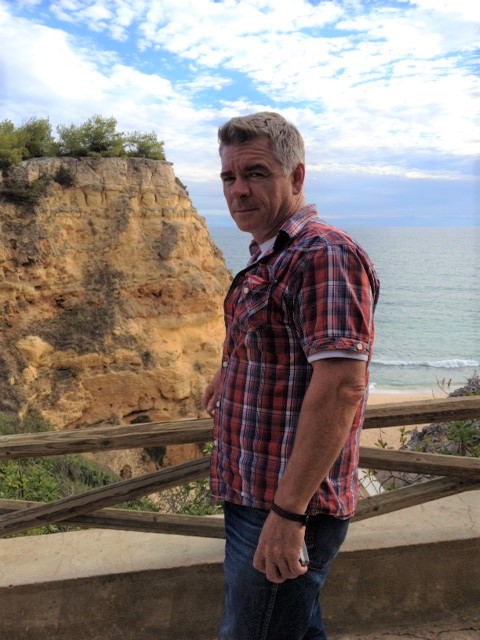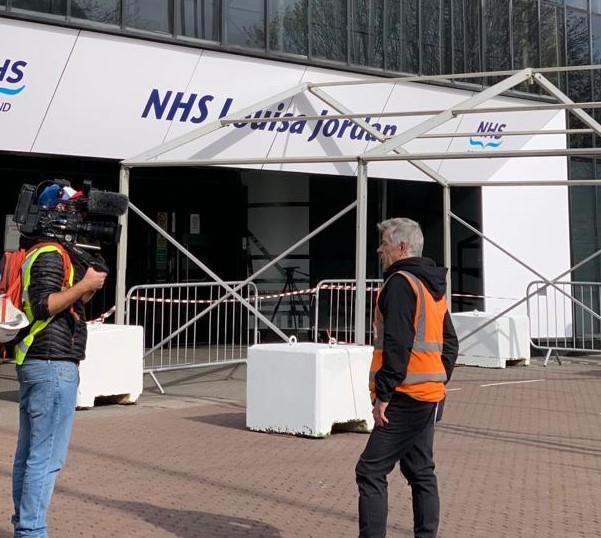We caught up with John Wilson, who has worked on site management and technical production for festivals including TRNSMT and now do a lot of work out in the UAE under company name Special Projects.
We caught up with John to get to know more about his extensive work with site structures, how his career has evolved, and what he sees as next for the industry….
What inspired you to work in live events?
The thought of the glamour and glitz of working in the music business – How naive was I.
My career came around by accident. As a kid one of my mates got a job with Edwin Shirley Trucking and I followed him down to London for what was going to be a long weekend.
The staging side of the company was in full flow preparing to do the Stones at Wembley, the craic was mighty (as they say) and I decided right then and there this was what I wanted to do.
By the end of the summer Edwin and Tim Norman (much respect to the both of them) offered me a full time job with the company where I stayed with for 16 year until I ventured out on my own and started Special Projects.
You’ve worked on a wide variety of one off and large scale events from Glasgow Summer Sessions to the FIFA World Cup. How did you get to work on these projects?
I suppose I rely on the old adage “word of mouth” and my proven ability to get jobs done on budget and on time.
The work I do regularly combines site and production elements and understanding how that all works you only get from mileage and a lot of grey hair.
I would add though that Site Management or being a Site Manager is a somewhat unrecognised profession within the business as you won’t find any award category for Site Manager like you do for say Tour Manager, Production Manager, Rigger, Backline Tech or even Travel Company.
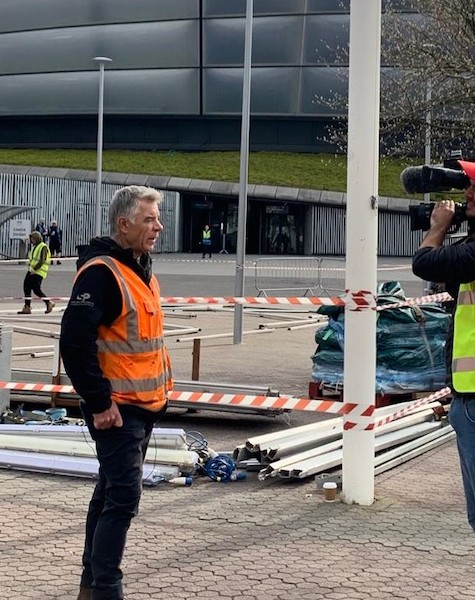
Your current work involves a special aptitude to finding and recommending stages and temporary structures for shows. What are the top 3 things you look for in a stage or structure?
Typically, with structures, this is client driven as form and or functionality is generally a primary concern although here in the UK unlike say the Middle East, cost will play a major role.
Stages on the other hand need to be reliability built and on schedule but also capable of hanging the intended production loads and to some extent capable of being able to be dressed to make them identifiable with the event.
What is the craziest or most challenging structure you’ve worked with?
The craziest request without doubt was when the client, 1 week into the 5 week build, told me that the stairs to the ladies section (at 9m) of the grandstand & auditorium we were building would not be suitable for the ladies to walk up. We need another solution.
Quite a few phone calls later 2 x 10m escalators were sourced in Shanghai and for a mid-ranged 6 figure price tag we could have them “shipped installed and working 2 days before the event” Perfect said the client – do they do elevators as well. Needless to say, this side project in amongst the main project had us all quite busy. Surprisingly schedule and installation dates were kept, and we had 1 up escalator and 1 down escalator working come show day.
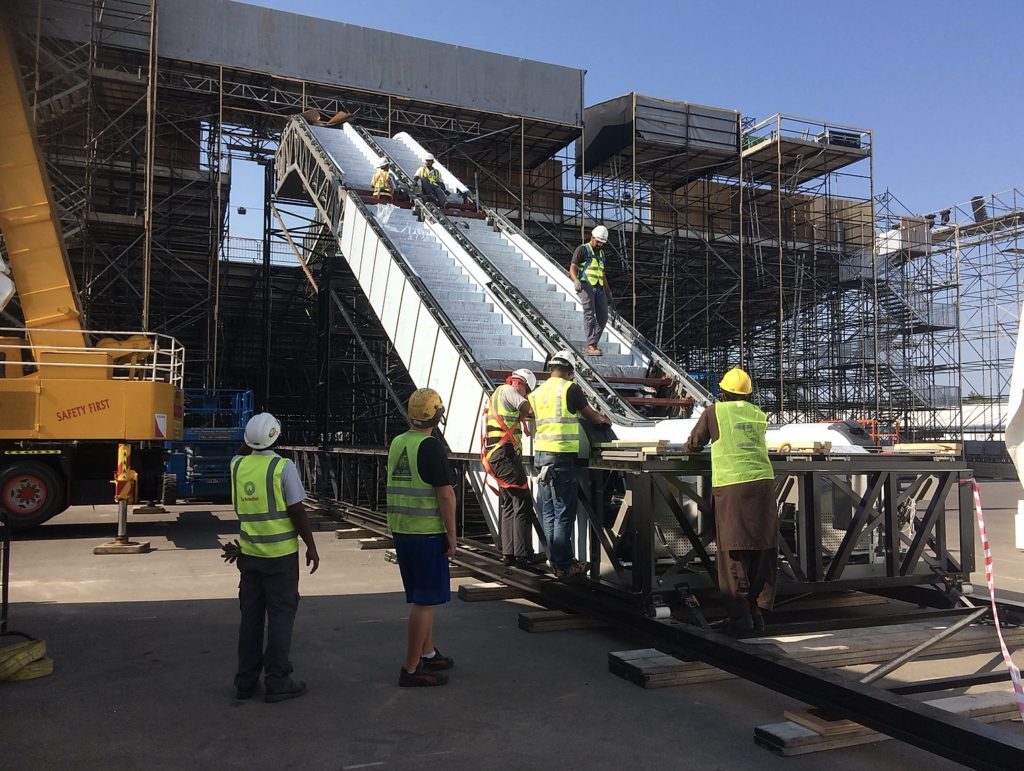
What is the one item you can’t do without on-site?
If you can call a really good site operations team who can know their stuff and can put up with the bullshit an item, then that’s my item.
Without these guys my job would be impossible, particularly as the jobs seem to be getting bigger and more complicated.
A fair few of your recent projects have been based in the Middle East. What are the main differences others may not consider when planning and working on events in that region?
It really depends where you are working in the Middle East. The UAE is now at the point where you can find over 90% of the hardware you require to put on a show. The tech side slightly less but there are now supplier out there offering European kit.
I have been working on and off in Saudi Arabia since 2007 and the change in the past 18 months has been dramatic. Their thirst for outdoor events is staggering but they are still at least 10 years behind the UAE curve and so you are going to be importing your kit to do shows here.
What would say has been your career highlight to date?
As I am sure everyone would say “That’s a difficult one”, and the older I get the more highlights there seem to be.
The ones that come to mind straight away would be project managing of the stage build at the Pyramids in Giza for JMJ’s millennium show or site managing the Pavarotti Tribute at Petra in Jordan. Both spectacular locations but also an amazing array of people involved as well
Overall though, I would say the job we just finished in Riyadh Saudi, Arabia has to be up there as a career highlight as is demanded all of the skills I possess along with some new ones I learned on the job, to get through it.
Over 100 days on site as overall site manager looking after a team of over 90 staff and dozens of infrastructure companies, to create the Diriyah Oasis a cultural and entertainment destination, with in the 9 areas of the Diriyah Season festival.
We built roads and pavements, buried over 25km of electrical and data cable, constructed 9 Geni farms built over 100 marquees just for BOH use. We then surrounded the site with a bespoke inner and outer 5m high 2km round, branded wall.
For the 4 weeks of events we then installed attraction such as an open air ice rink, built an 2million plus litre Aqua pond for speed boats a Go cart track a 60 container box dining park & big wheel to name but a few of the attractions. At the peak of construction, we had over 1,000 workers on site, quite a challenge on a 6 week build.
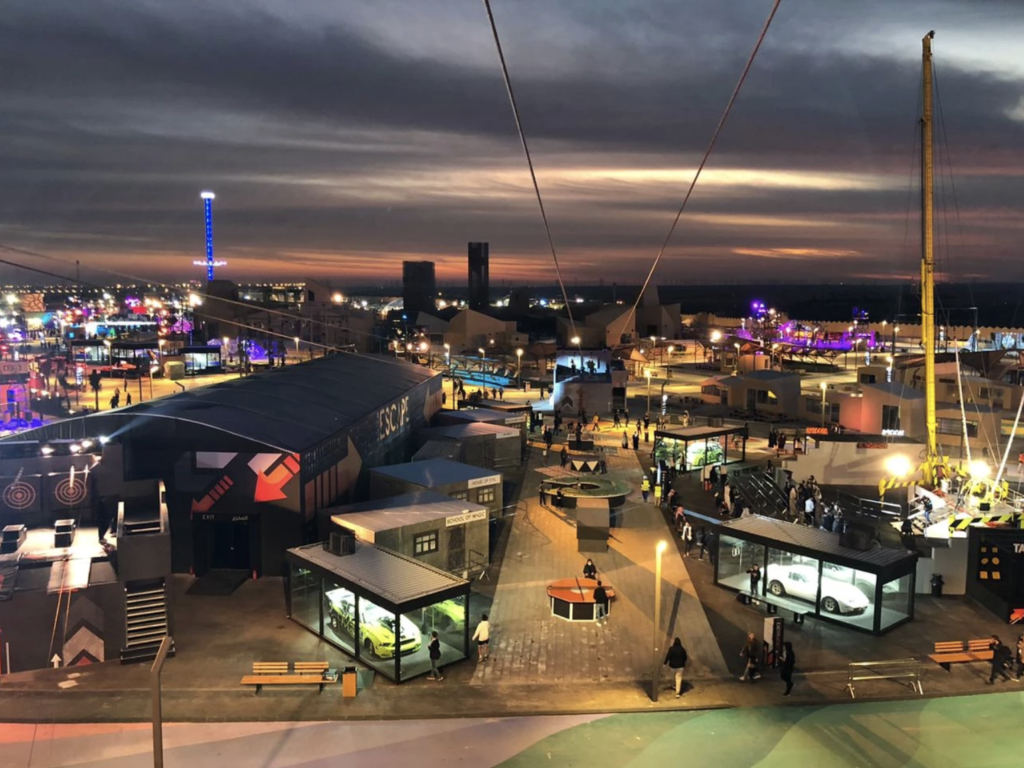
We’ve all heard of the post event blues that comes after working so hard on project – how do you manage your wellbeing between events?
That is a real problem we never talk about enough.
We live in each other’s shadow for long periods of time on jobs and when its time to return to regular life its can be surprising how much pent up stress and frustration can come out.
Personally, I need to ease my way back into home life, maybe take a day or two to decompress somewhere and remember that it is not all about me.
It’s easy to forget that someone else has been looking after your back while you have been away and that they too have had stress and strains lumped on them while you have been away.
You’ve been in site and technical production for 24 years – what has changed in the industry since you started?
The biggest change by far has been the use of PPE.
When I first started building stages in the 90’s harnesses were for mountaineers, Hi Viz vests were for railway workers and steel toe boots you might find on a building site.
It has been a long haul to get where we are now, possibly a generational thing but PPE has saved lives is now industry standard work wear.
How do you envisage site management for events changing beyond 2020?
How we deal with the pandemic is certainly going to be the biggest challenge and that means what practical procedures we need to implement when we go back to work.
Undoubtedly organisers will be looking for larger spaces for break areas and offices on site and stadiums.
Artists might feel they need better sanitary & space arrangements and the biggest issue, how do we deal with mass audience in this new world.
There is a lot of work to be done here and finding the balance between affordability and practicality is going to be the key.
Follow John Wilson online
